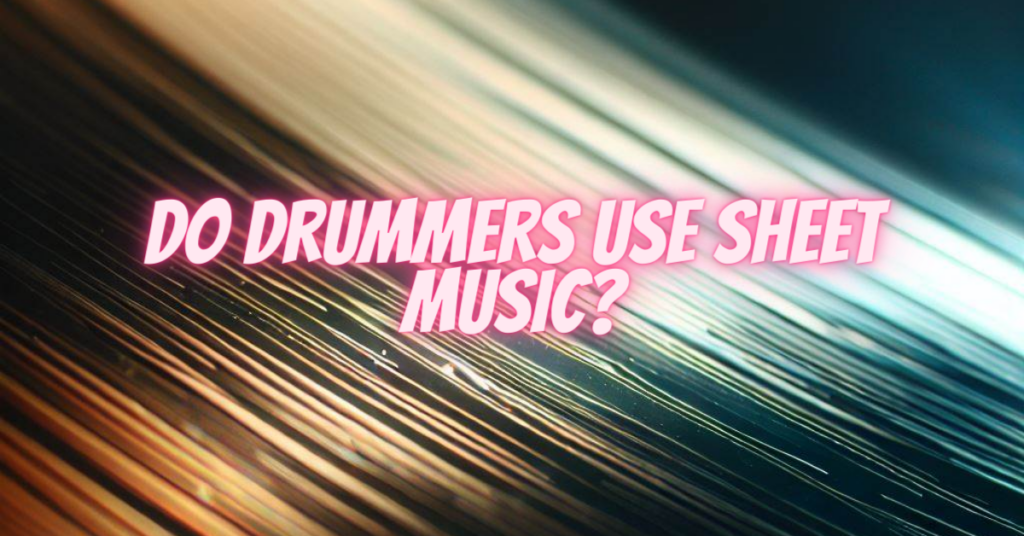Drummers, the heartbeat of any band, play a pivotal role in shaping the rhythm and energy of a musical piece. Yet, the question of whether drummers use sheet music has long been a topic of intrigue. In this article, we will explore the relationship between drummers and sheet music, shedding light on how drummers navigate the world of musical notation.
1. Standard Drum Notation:
Drummers do have a form of musical notation specific to their instrument. Standard drum notation uses a system of lines and symbols to represent different drums and percussion instruments, indicating which drum to strike and how to strike it. Drum notation commonly includes elements such as note heads, stems, and various shapes representing different drums and techniques.
2. Learning and Communication:
Drummers, especially those studying music formally, often learn to read standard drum notation. It serves as a valuable tool for communication between musicians, composers, and arrangers. When working with other musicians, particularly in complex compositions or orchestral settings, drummers can interpret sheet music to precisely execute the composer’s intentions, ensuring a cohesive and synchronized performance.
3. Improvisation and Creativity:
While drummers can read sheet music, their artistry often involves a significant degree of improvisation and creativity. Many drummers develop their unique styles, incorporating various techniques, rhythms, and patterns that might not be explicitly notated. In genres like jazz, blues, and rock, drummers are known for their ability to improvise and add expressive elements to a piece, going beyond the confines of written notation.
4. Popular and Contemporary Music:
In the realm of popular and contemporary music, drummers often rely on a combination of sheet music and personal interpretation. While some drum parts are precisely notated, many modern music styles allow drummers the freedom to create their own drum patterns, fills and embellishments. In these cases, drummers might use a basic outline provided in sheet music as a starting point and then infuse the piece with their unique flair.
5. Education and Professionalism:
Drummers pursuing formal music education or working in professional orchestras, theater productions, or studio sessions frequently encounter sheet music. For them, the ability to read and interpret drum notation is a valuable skill that enhances their versatility and employability. It allows them to participate in a wide range of musical projects, from classical ensembles to musical theater productions.
Conclusion
While drummers are often associated with spontaneity and rhythm, the use of sheet music is a valuable aspect of their training and performance toolkit. Whether they are reading complex orchestral scores or interpreting simple rhythm patterns, drummers skilled in the art of musical notation find themselves well-equipped to collaborate effectively with other musicians and bring diverse musical compositions to life. The interplay between written notation and creative expression showcases the drummer’s adaptability and versatility, enriching the world of music with their unique rhythmic contributions.


